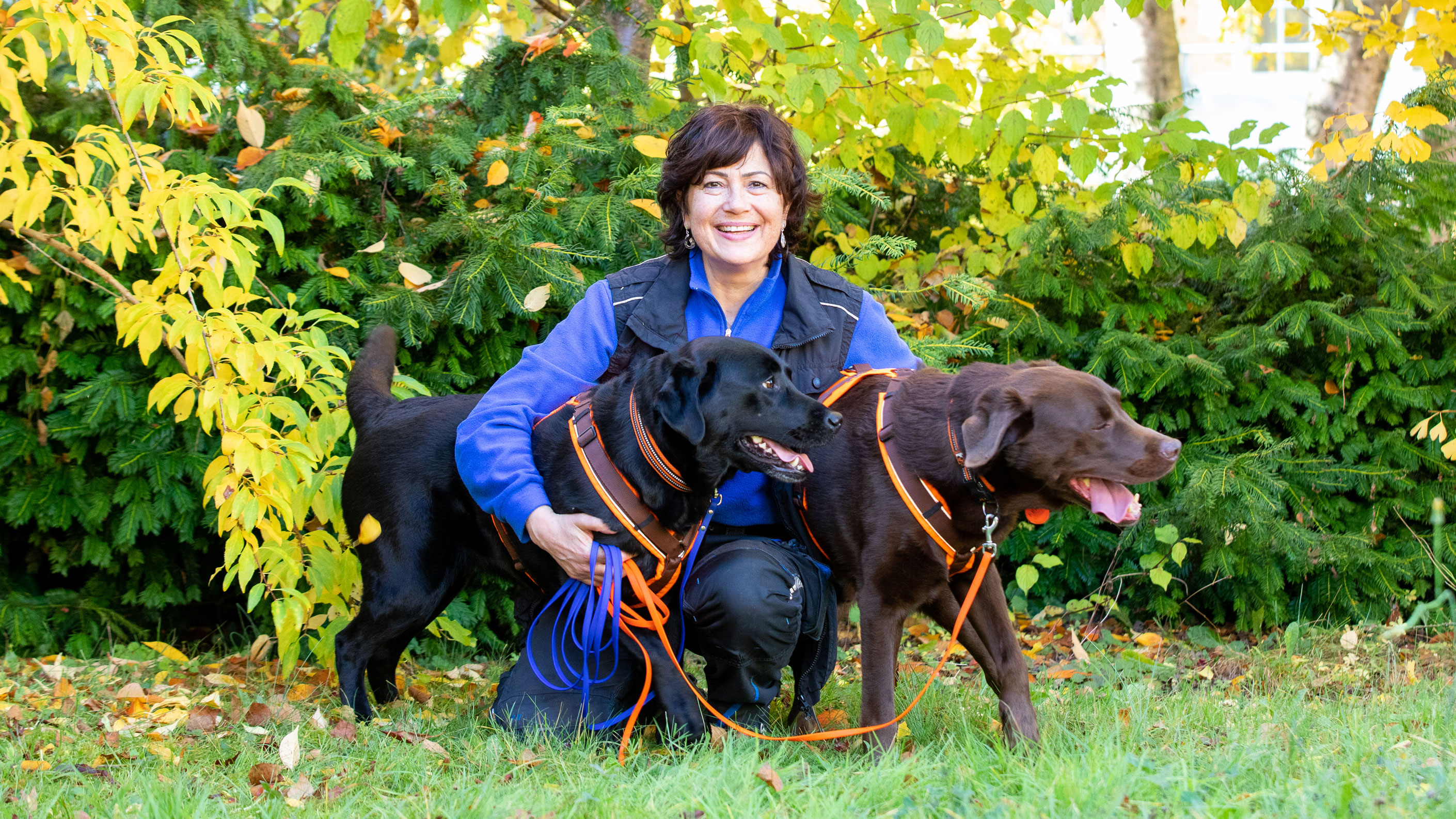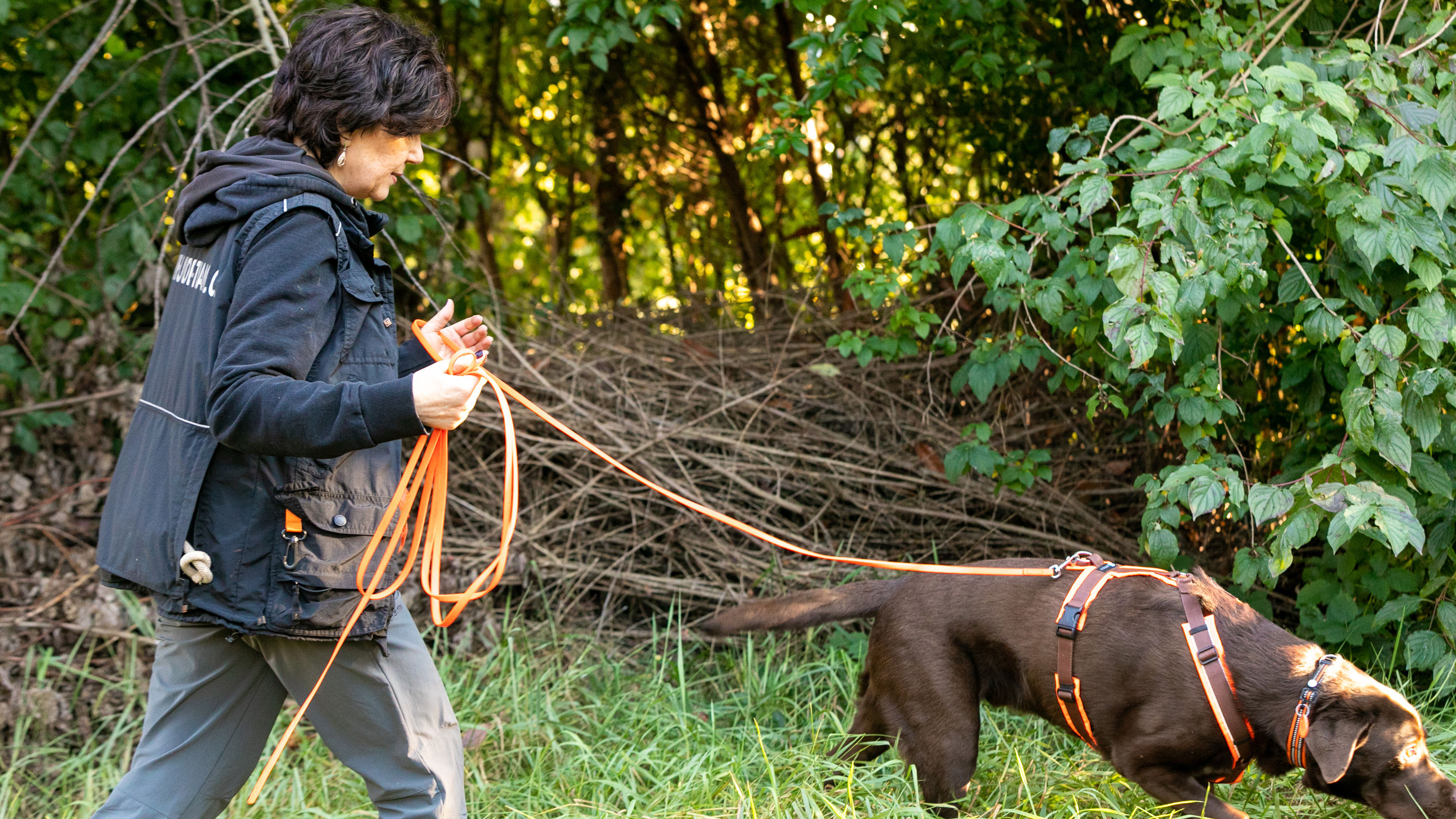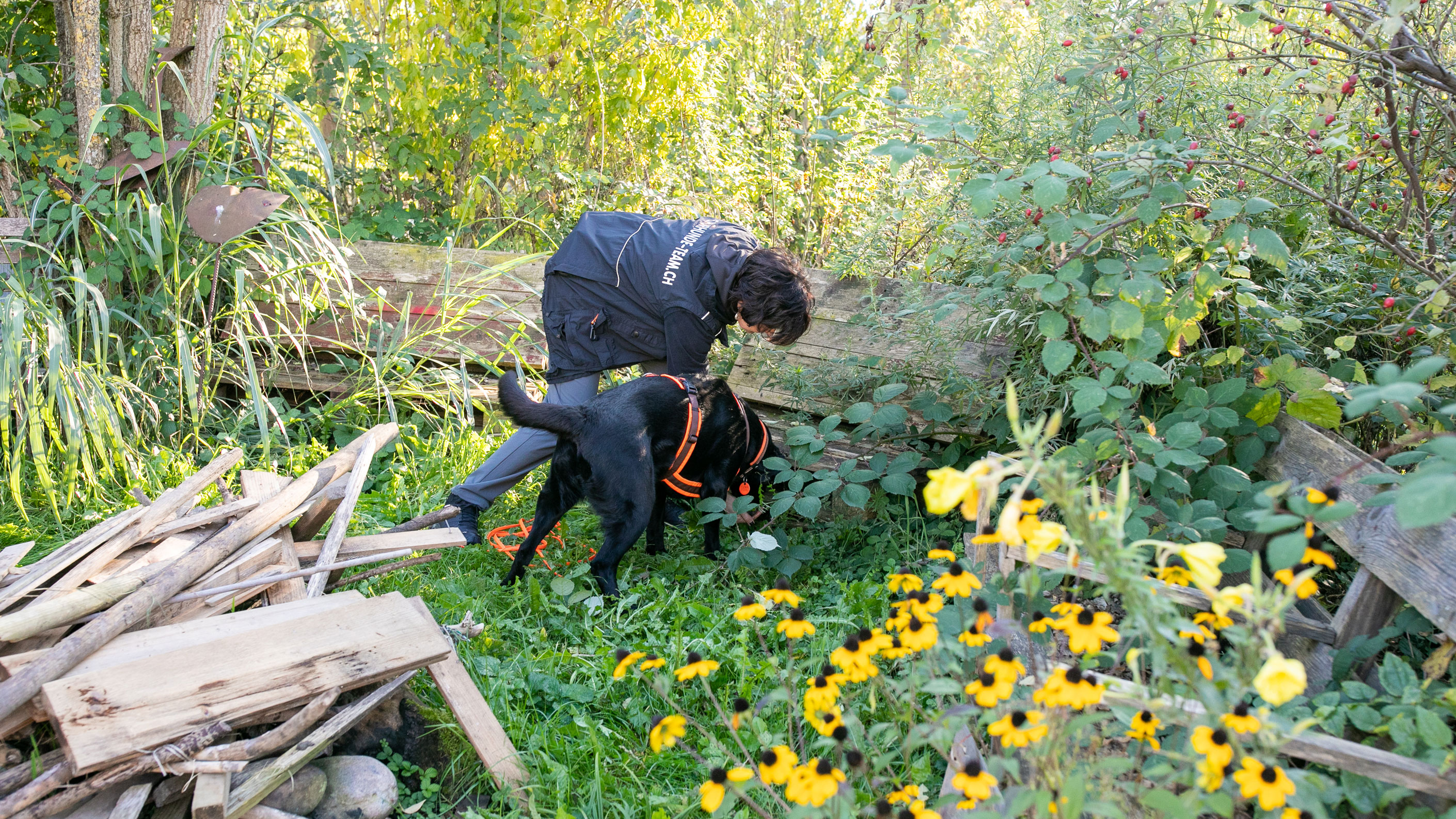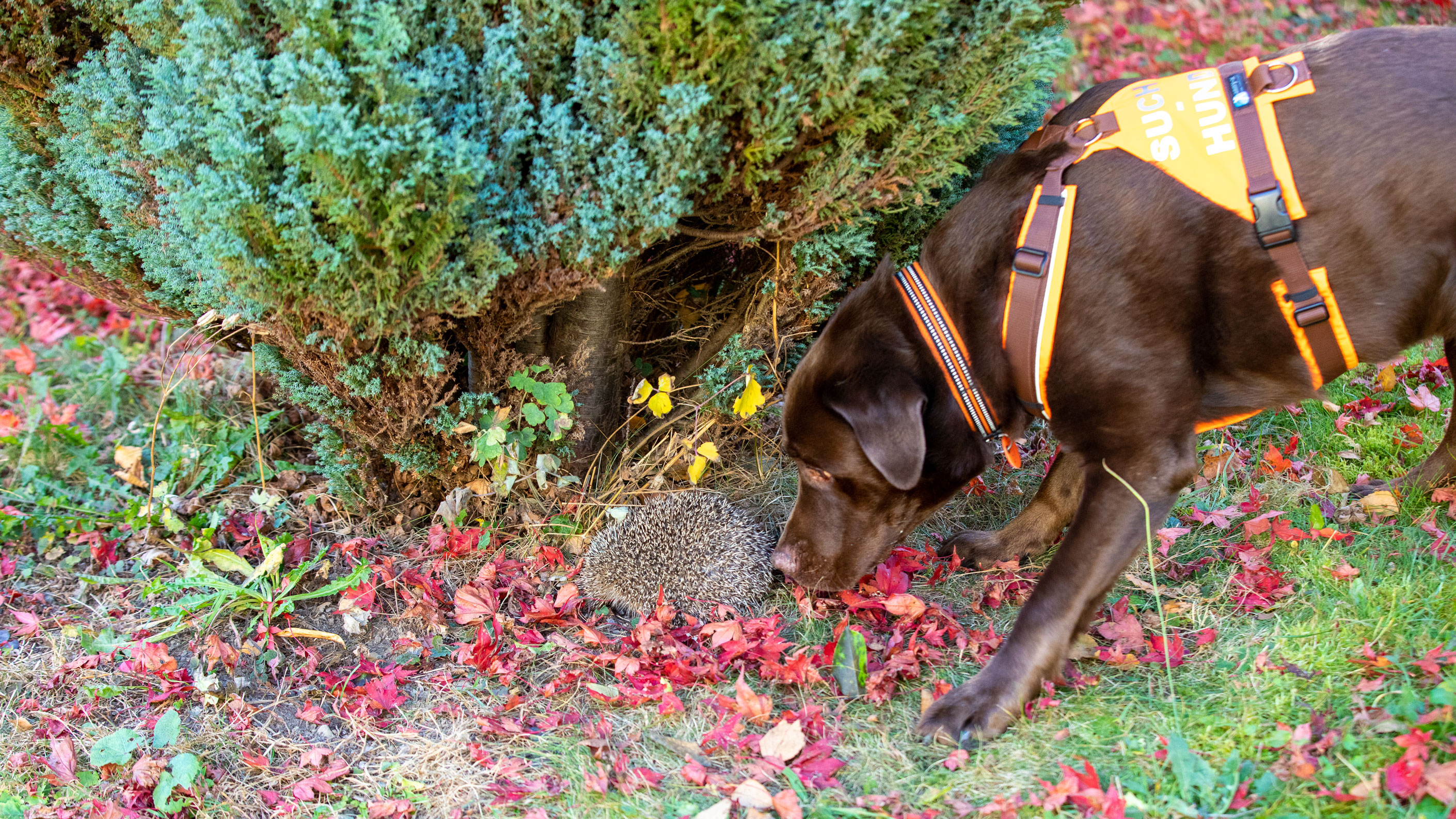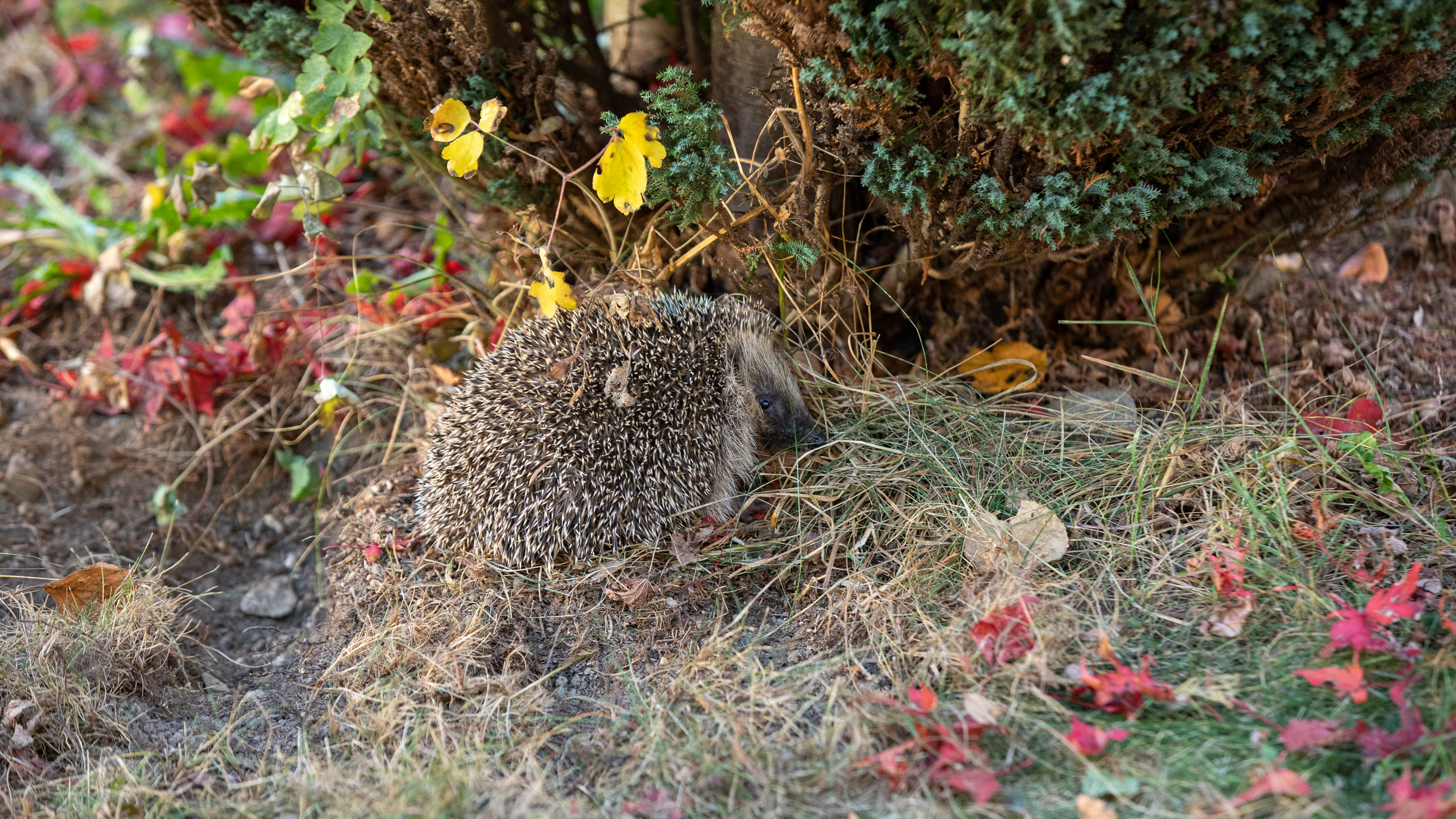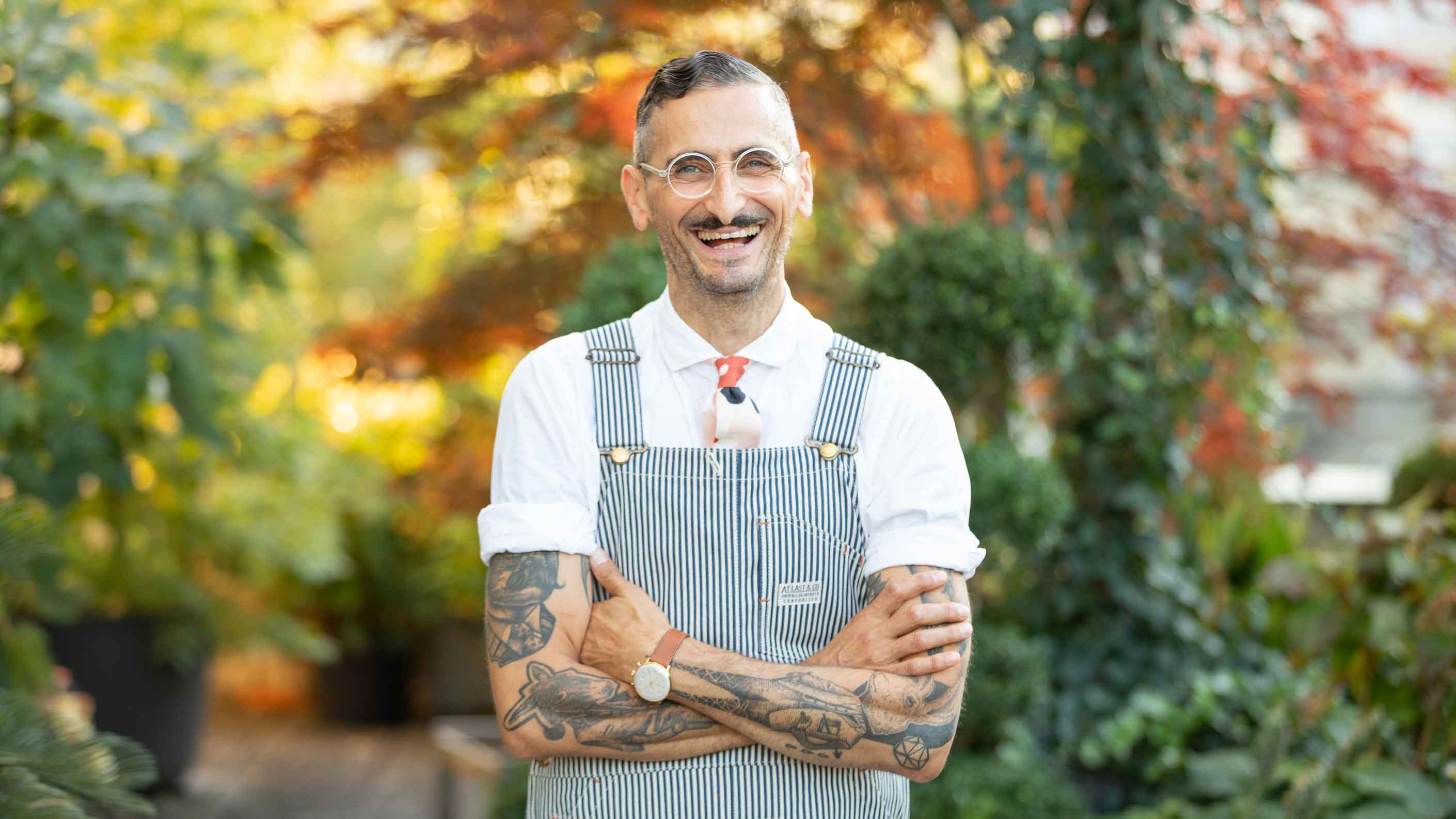'My dogs are the best work colleagues'
Zurich residents with special professions: Mirella Manser is a sniffer dog handler. Together with her four-legged work colleagues, she goes over hill and dale to rescue hedgehogs from lawnmowers, excavators and tractors. How do you become a sniffer dog handler, how long do you have to train your dogs, and what do you have to be aware of when you find a hedgehog?
Mirella, your work and that of your dogs is quite special. What is your profession?
I am a sniffer dog handler and my dogs are therefore sniffer dogs. But they are normal family dogs with special training, which means that we live together and also work together.
And what do you do as a tracking dog handler?
With my dogs I search areas that are about to be cleared - no matter whether private gardens, allotment garden areas or building plots. We then rescue the hedgehogs that have nested there so that they don't come to any harm and get a new habitat.
'Sometimes you have to relocate the hedgehog and its young much further.'
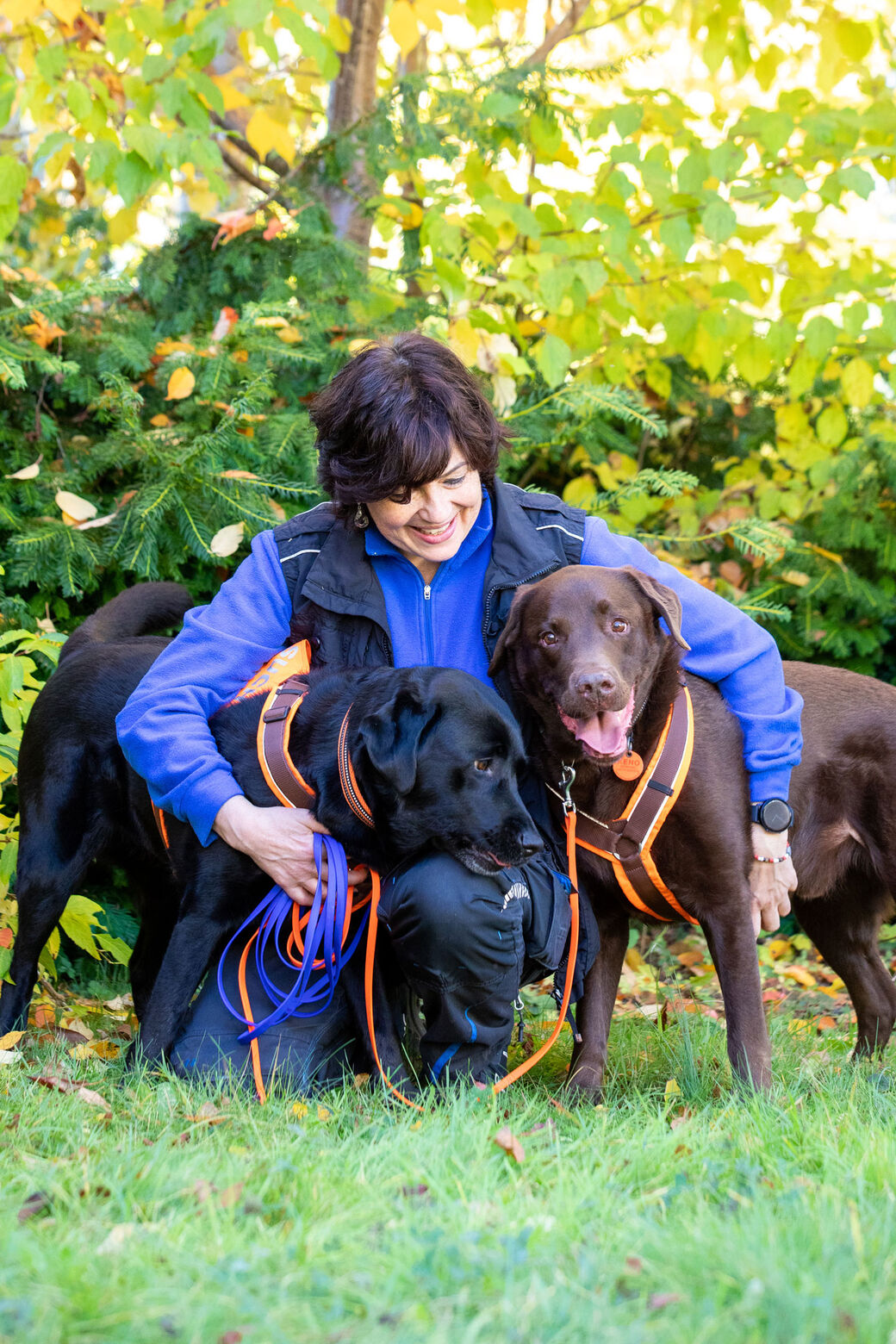
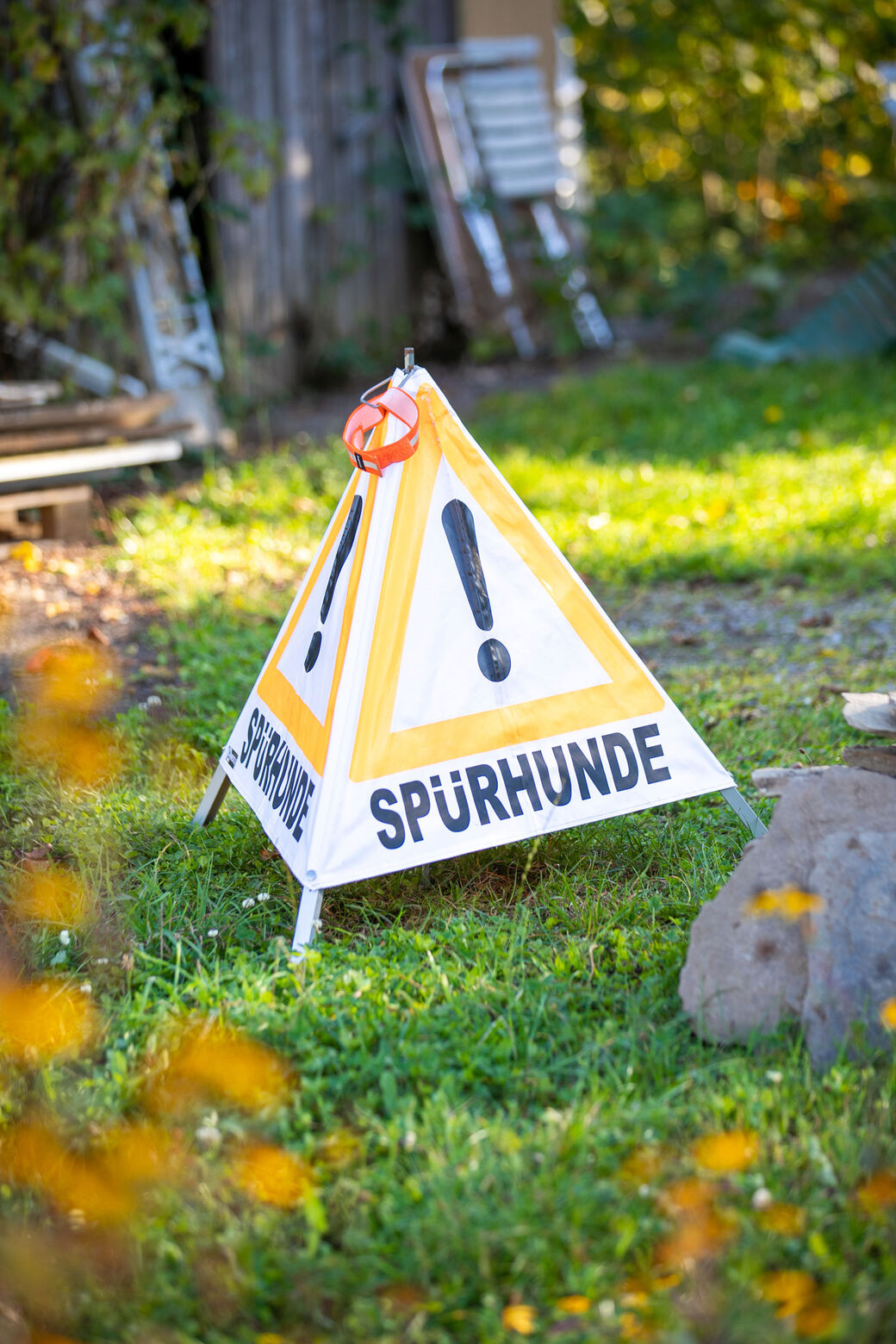
What happens when you and your dogs find a hedgehog?
That depends on the situation. I am in constant contact with the Hedgehog Centre Zurich. They then give me instructions on what I have to do. It depends, for example, on the time of year, the sex of the animal, whether it has young or not, whether it is hibernating, and much more. Sometimes it is enough to take the hedgehog into a neighbour's garden. Sometimes, however, you may have to move the hedgehog and its young much further. The resettlement is then carried out by the Hedgehog Centre Zurich.
'I was looking for ways to keep my dog busy.'
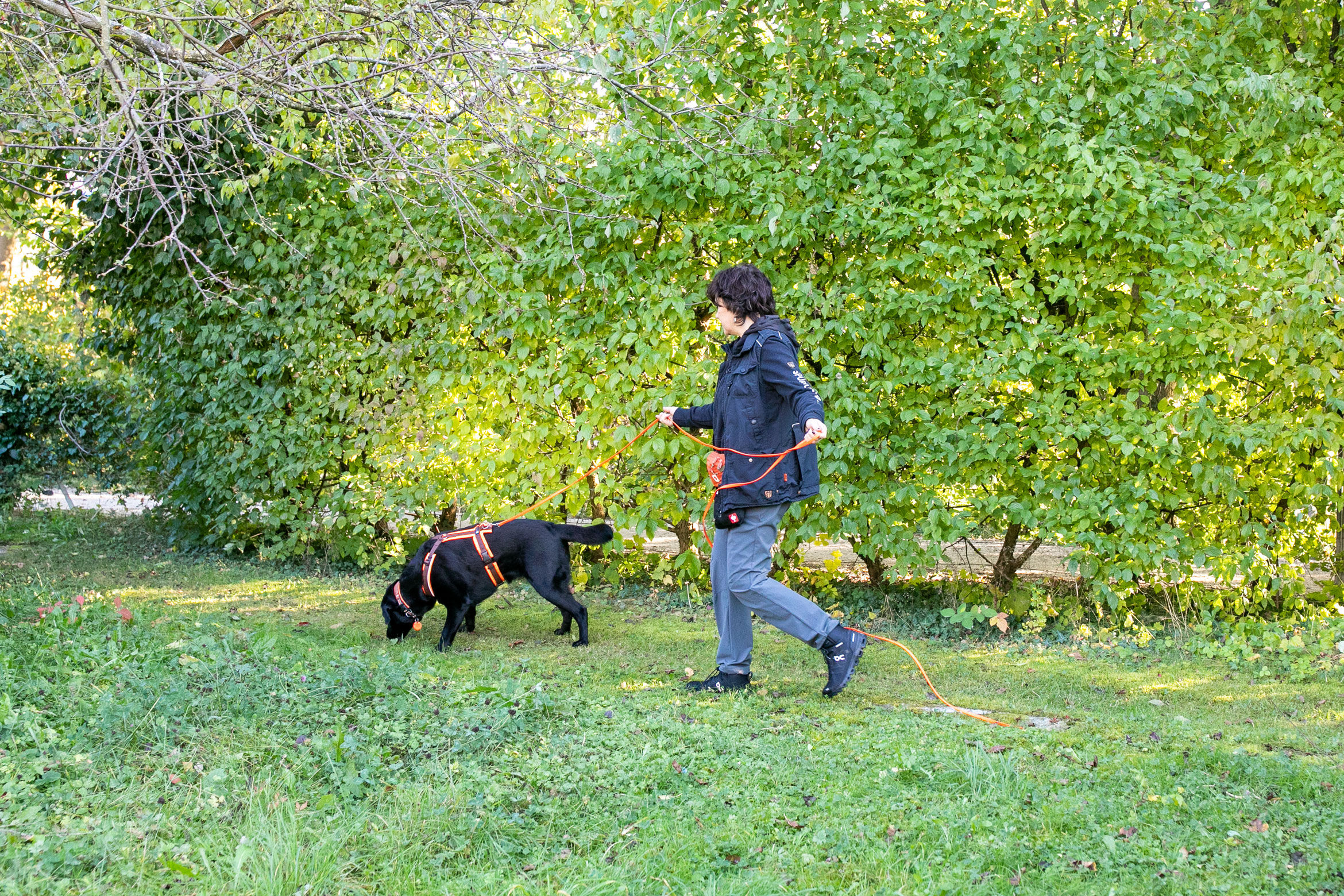
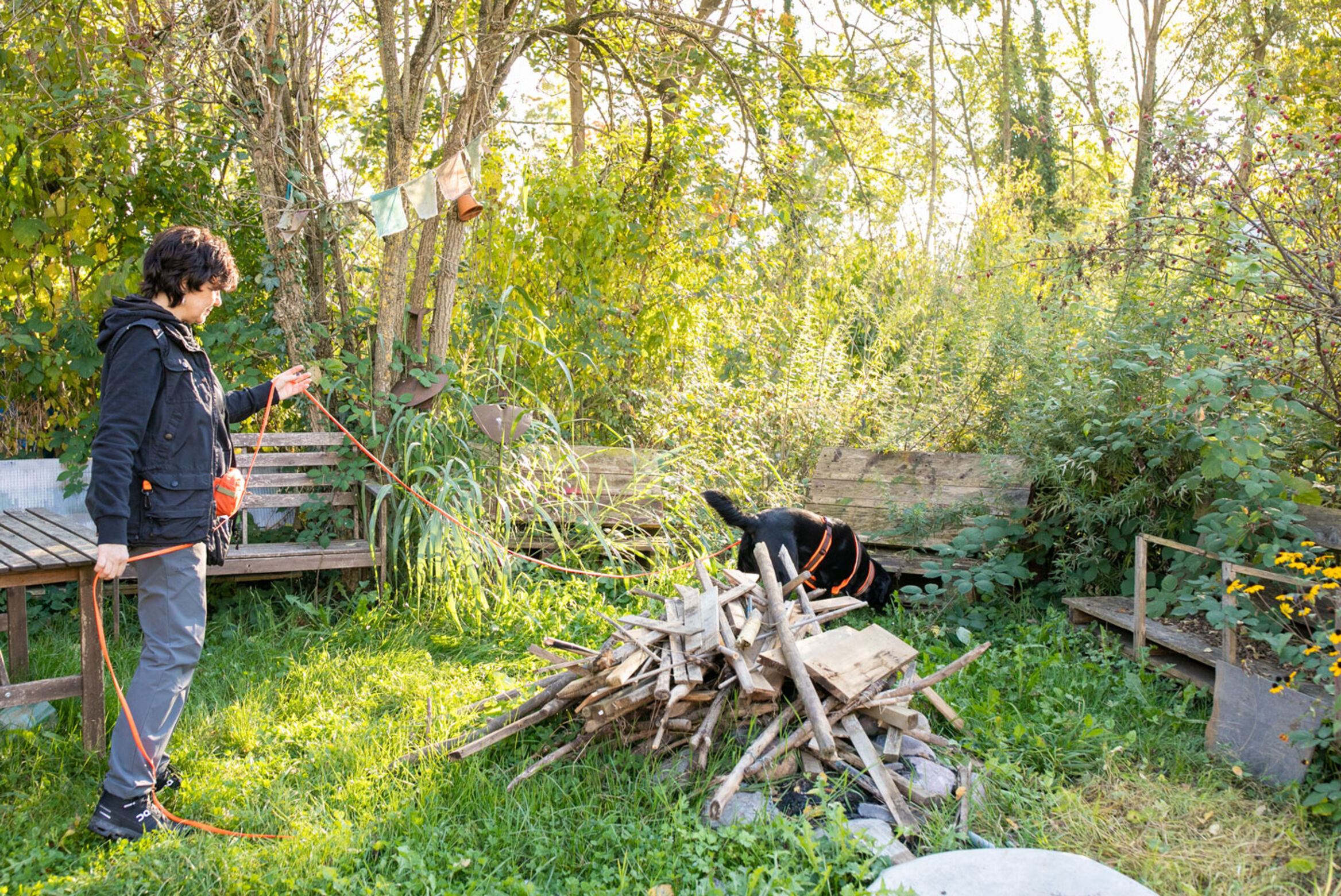
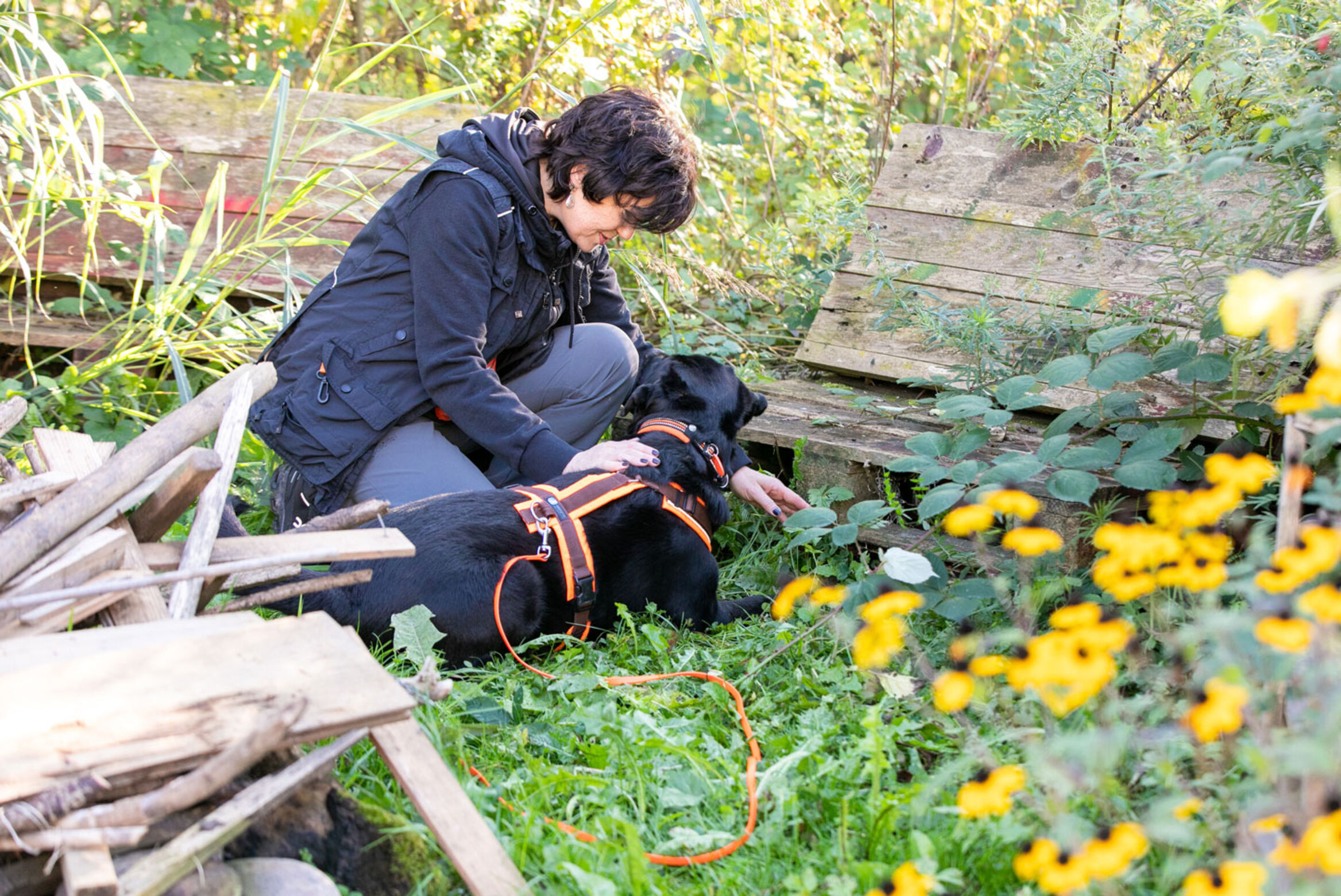
How do you become a sniffer dog handler?
It all started with my first dog Keno - a brown Labrador. He came to me in 2010. He was quite lively as a puppy and not so easy to handle. So I searched the internet for ways to keep Keno busy. At the Schwarzwald Dog Centre we then did a special assessment and realised that Keno didn't need to be challenged by physical exertion, but rather by mental work.
What happened next?
We started with so-called nose work. In training, Keno learned various search techniques. Because he enjoyed it so much and I was also thrilled that he could find a tiny scrap of cloth in an area the size of a football field within a few minutes, I decided to train Keno as a sniffer dog. Then one day I read about a pest, the Asian Hardwood Beetle - and that there was an idea to use sniffer dogs to track it down. I applied for a place in the training and was selected together with Keno.
What came next?
We were allowed to participate in a special training in Austria and became a specified sniffer dog team. For over a year we worked in a Swiss sniffer dog team. After that, Keno and I specialised in another animal.
You came up with the hedgehog, so to speak?
Exactly. I heard about the Hedgehog Centre in Zurich and that they were looking for a successor for their tracking dog. I got in touch with Keno and was allowed to train the new search patterns with Keno for several months. I also had to learn how to handle hedgehogs properly. That's why a few of the prickly four-legged friends were even allowed to spend the winter in my garden.
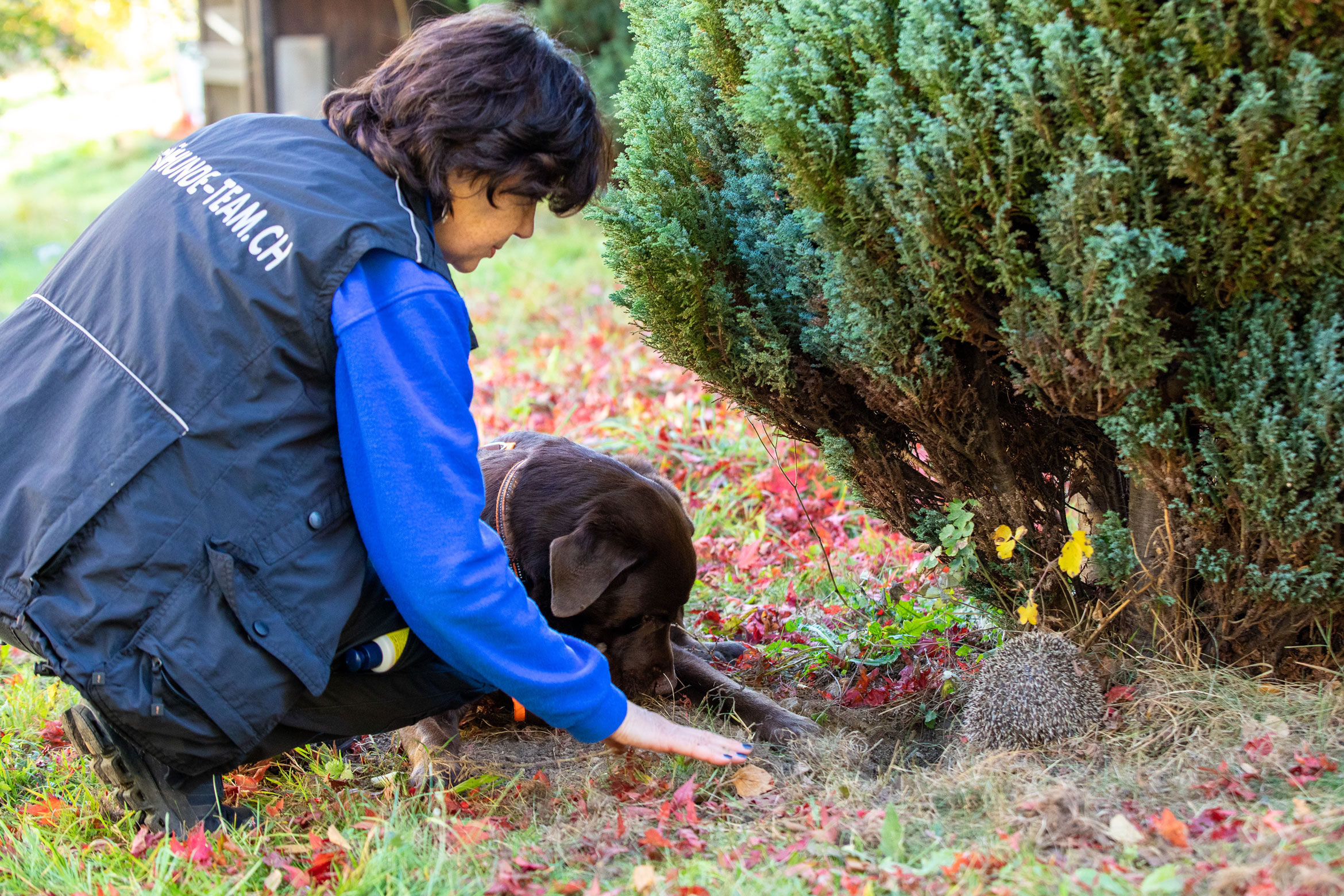
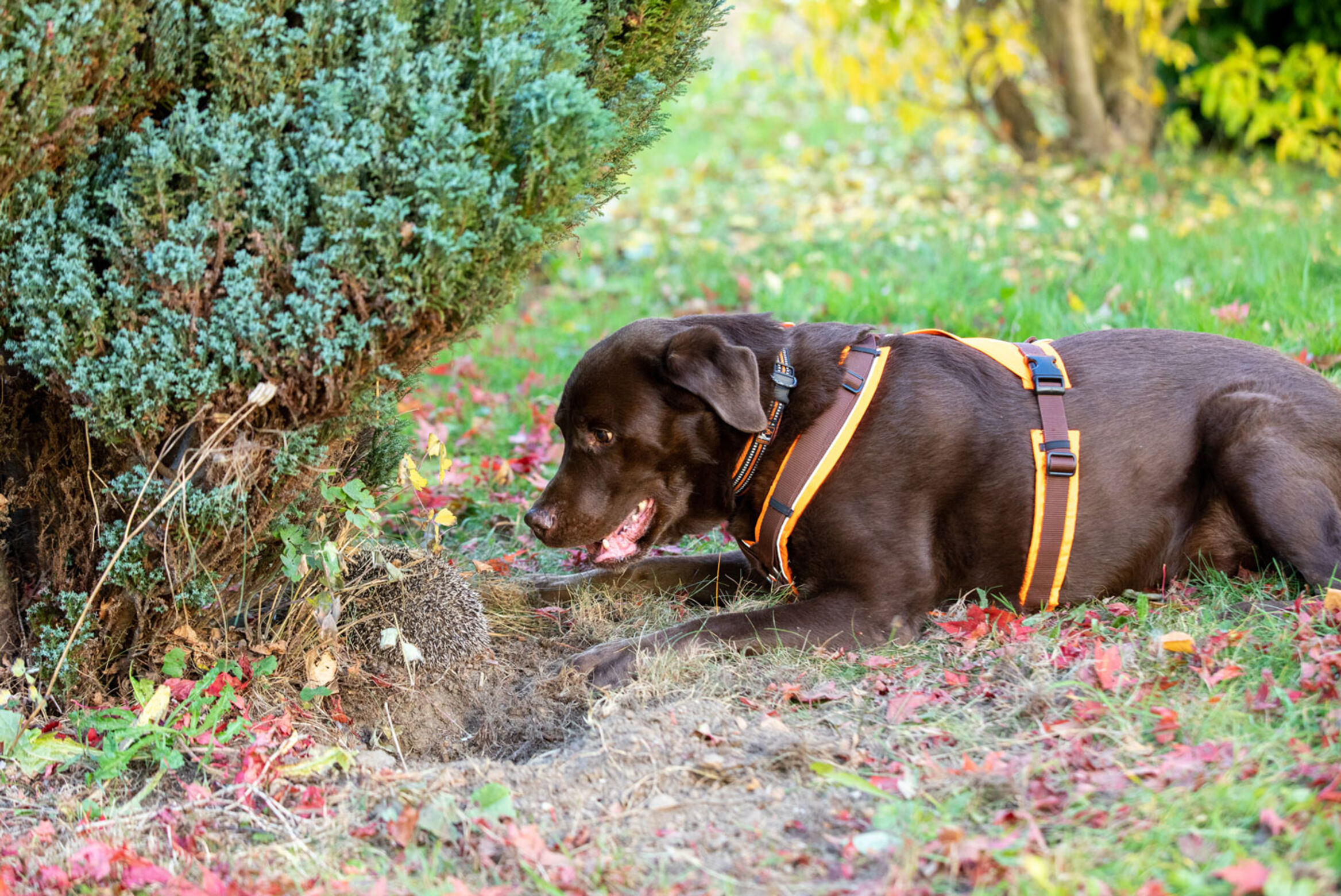
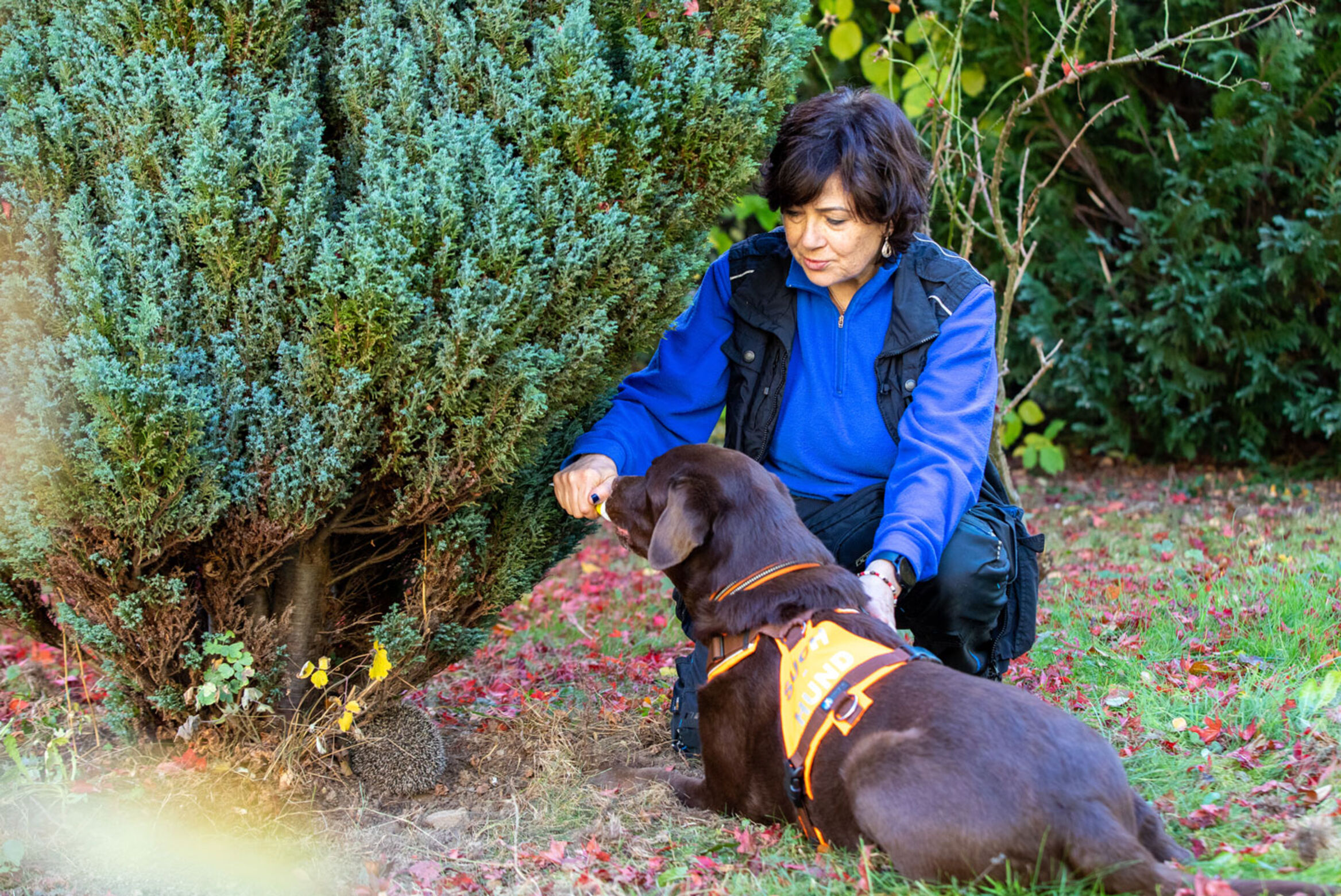
'Training is done on hedgehog spines first.'
How do you teach dogs to look for hedgehogs?
Of course, the dog has searching in its blood somehow. However, this is not enough to master the work. The dog must learn to systematically search an area - according to the instructions of its handler. At the same time, the dog is conditioned to the hedgehog's scent and trained to differentiate between scents. The dog learns to indicate only the hedgehog smell among many other smells.
Sounds like hard training.
It is intensive, but we have a lot of fun. I train with my dogs almost every day. This is not only time-consuming, but also cost-intensive. In addition to scent differentiation, we also train our dogs to indicate correctly when they have found something. Training is first done on hedgehog spikes. The dog gets a reward when it finds the spines and - at least with my dogs - sits down and barks.
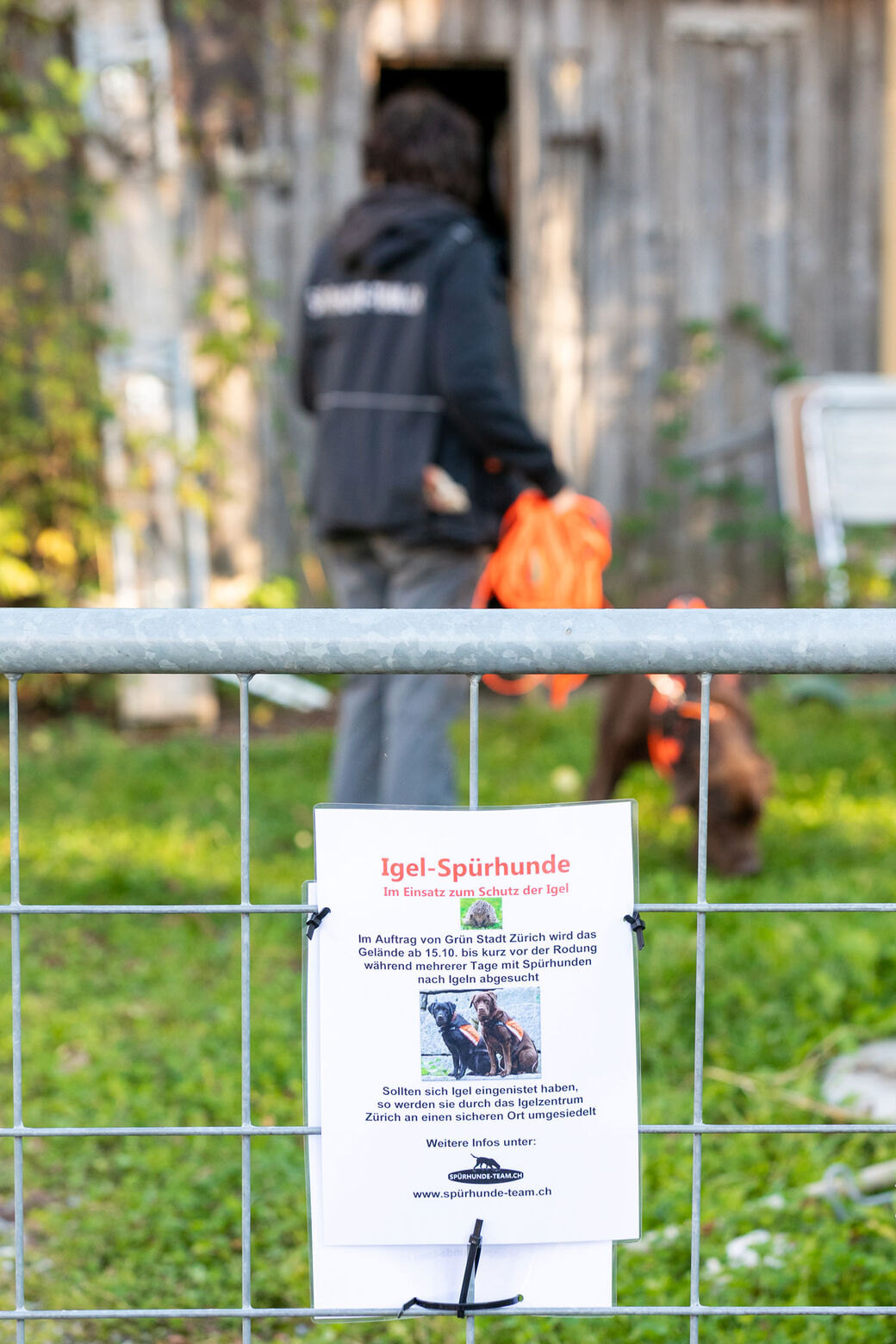
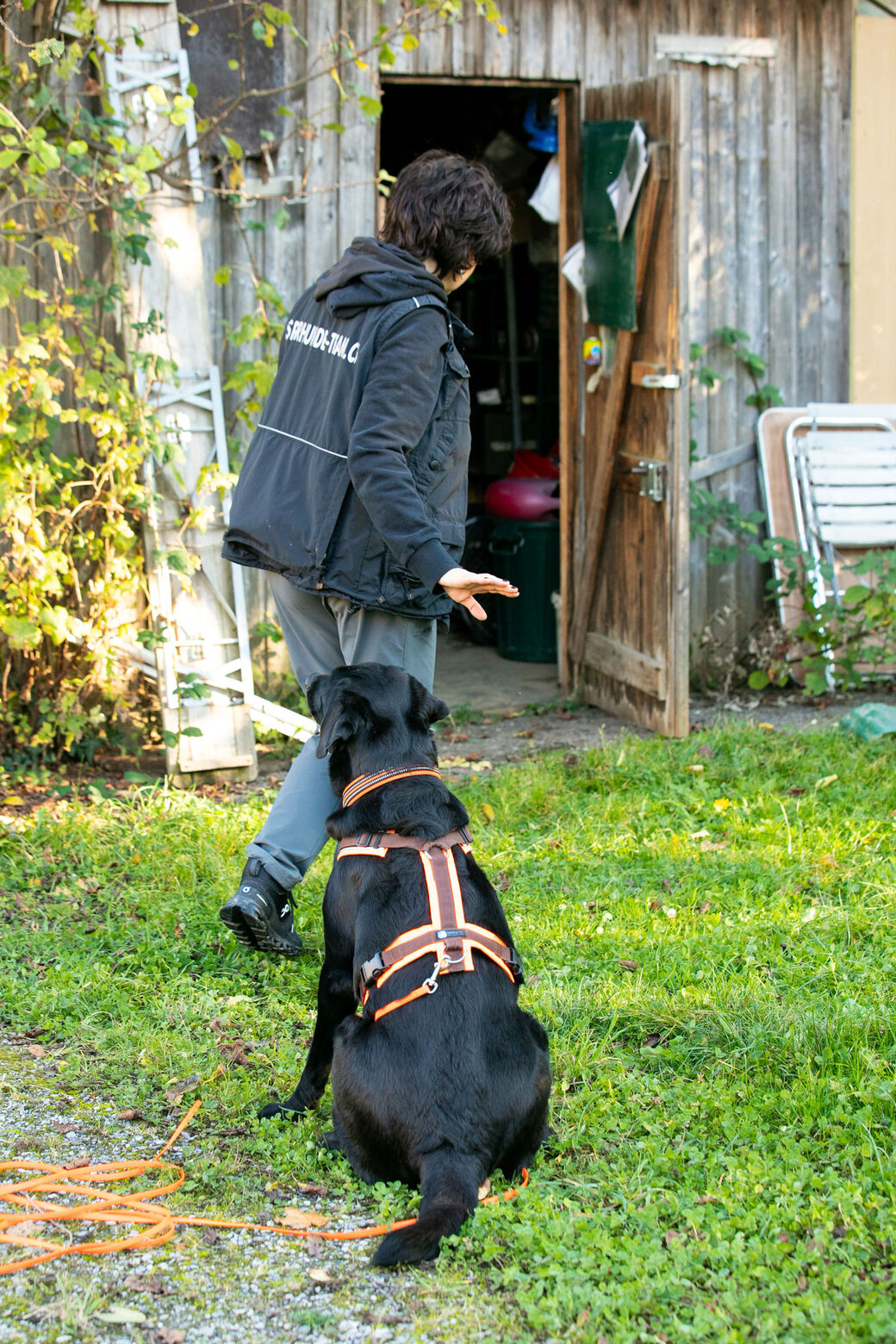
We have now talked about the dogs' work. What do you have to consider as a sniffer dog handler?
Besides the intensive training, I have to make sure that we are a well-coordinated team, that the dog wants to work with me without any problems. It is important that the human learns to read the dog and its body language correctly. You have to understand how and for how long you can use the dog.
So your dog Keno is now 11 years old. Is he still working as a sniffer dog or is he retired?
He is actually retired, but still has a desire to work. That's why I like to use him for second opinions or for fine searches, that is, for work where he doesn't have to travel too far. For example, we often look under garden sheds to see if hedgehogs have nests there. Keno is still very good at helping with that. For the really strenuous work, my other dog Yuma helps me.
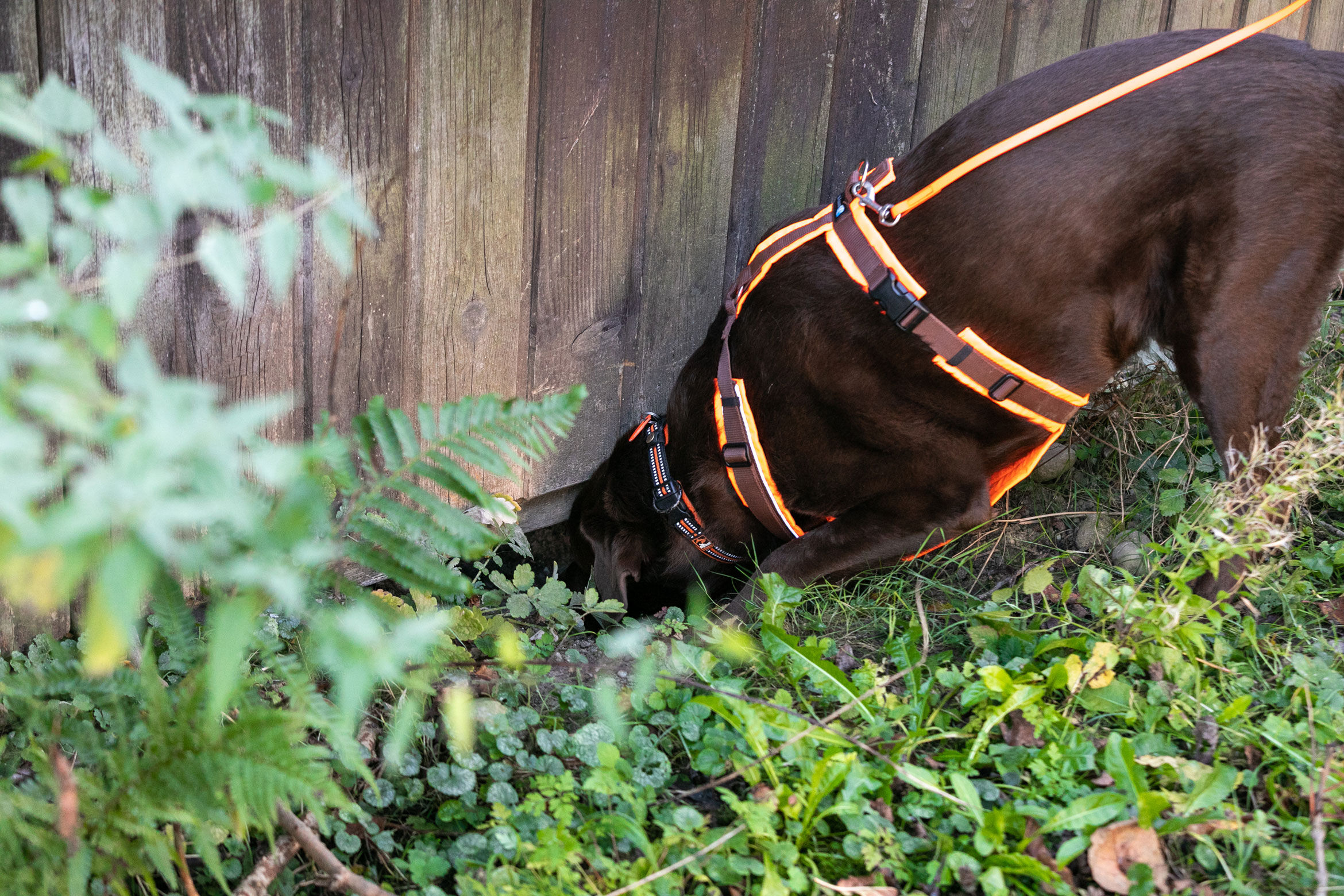
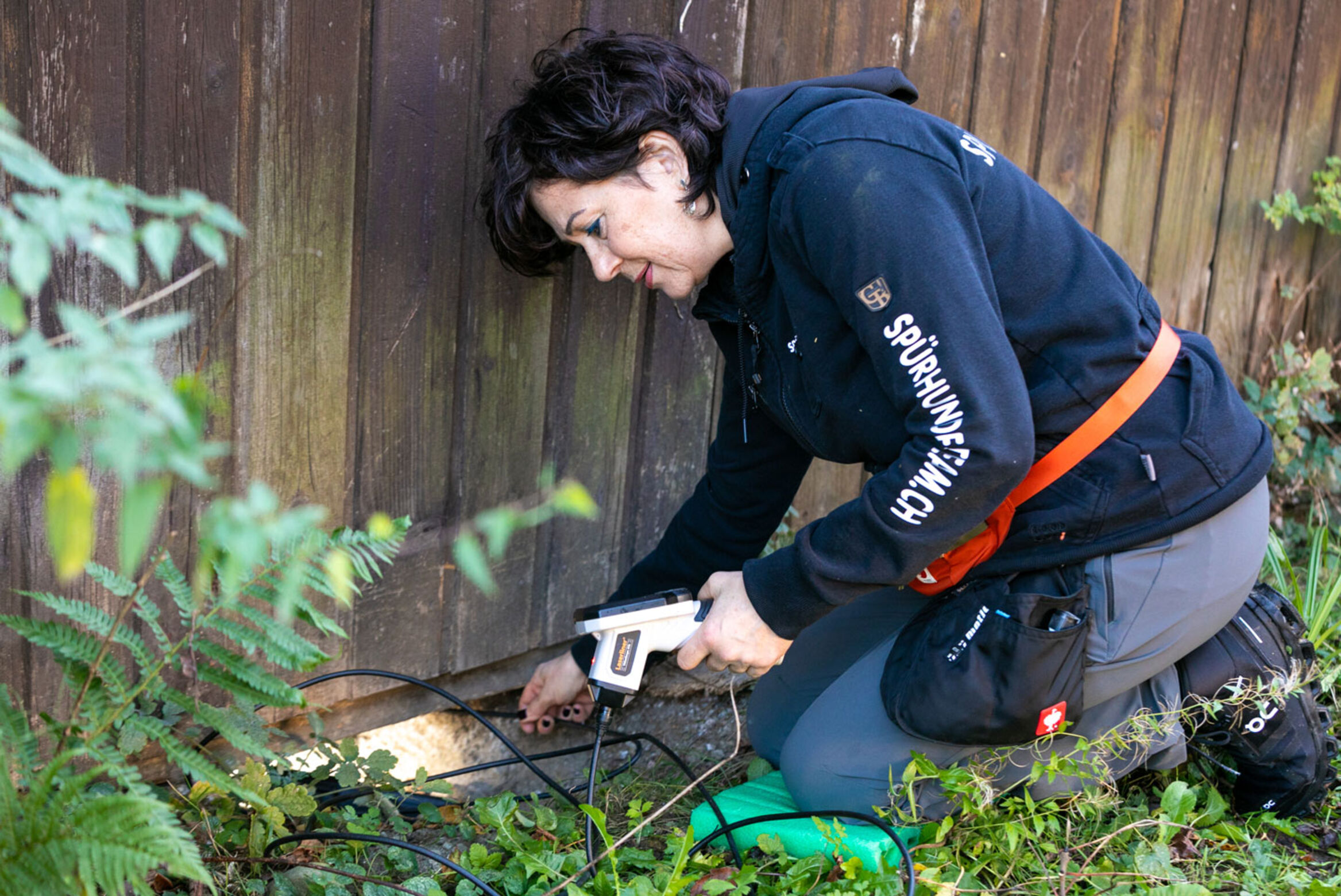
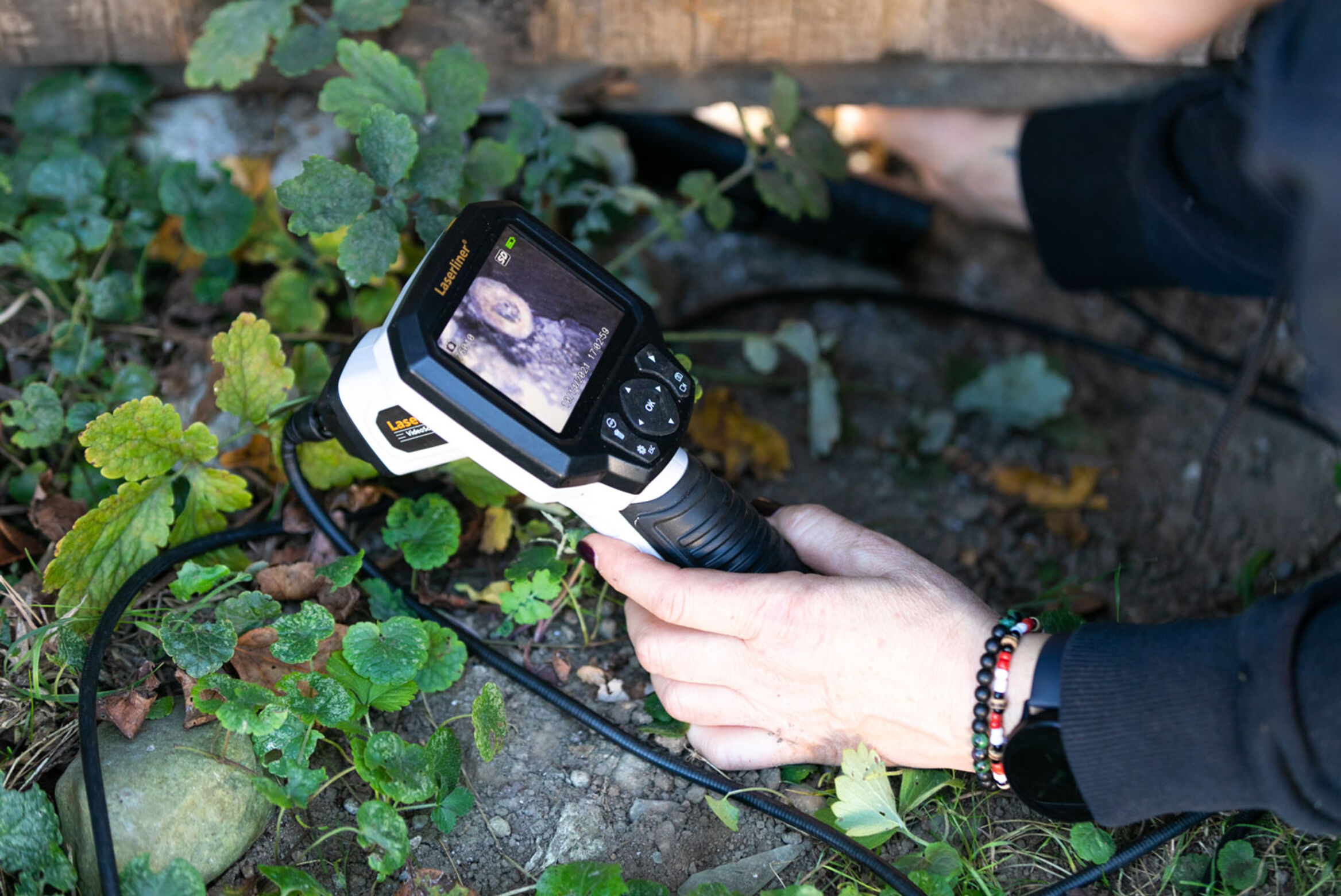
'We'll be have another female at the end of the year.'
So Yuma is responsible for the big areas?
Exactly. Yuma is a six-year-old black Labrador. When we have to search large areas, often thousands of square metres, Yuma takes over. She was trained to search for hedgehogs as a puppy and is therefore very fast and reliable in her work. At the end of the year, another female will join us. With her I will then also complete the tracking dog training at the Schwarzwald Dog Centre.
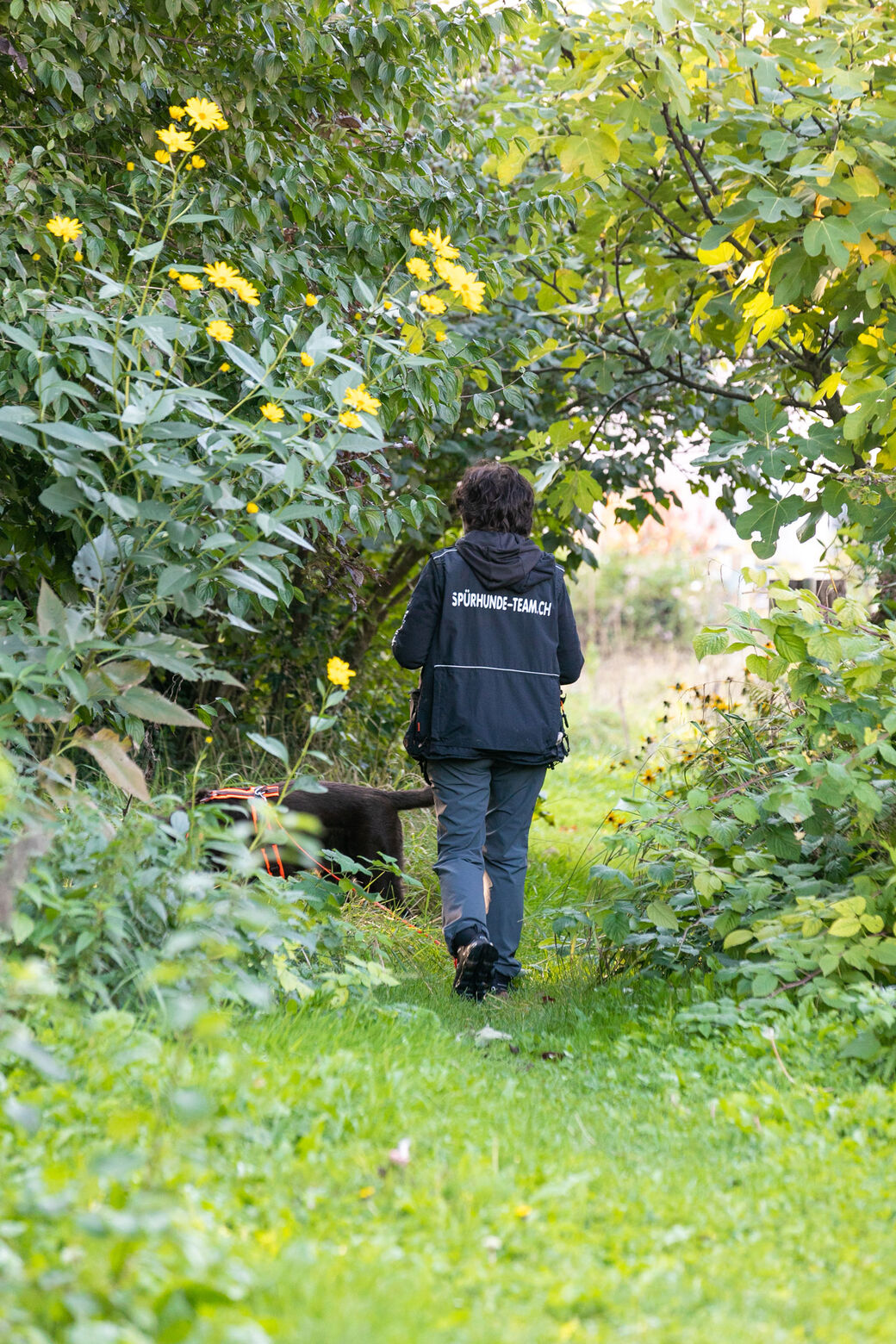
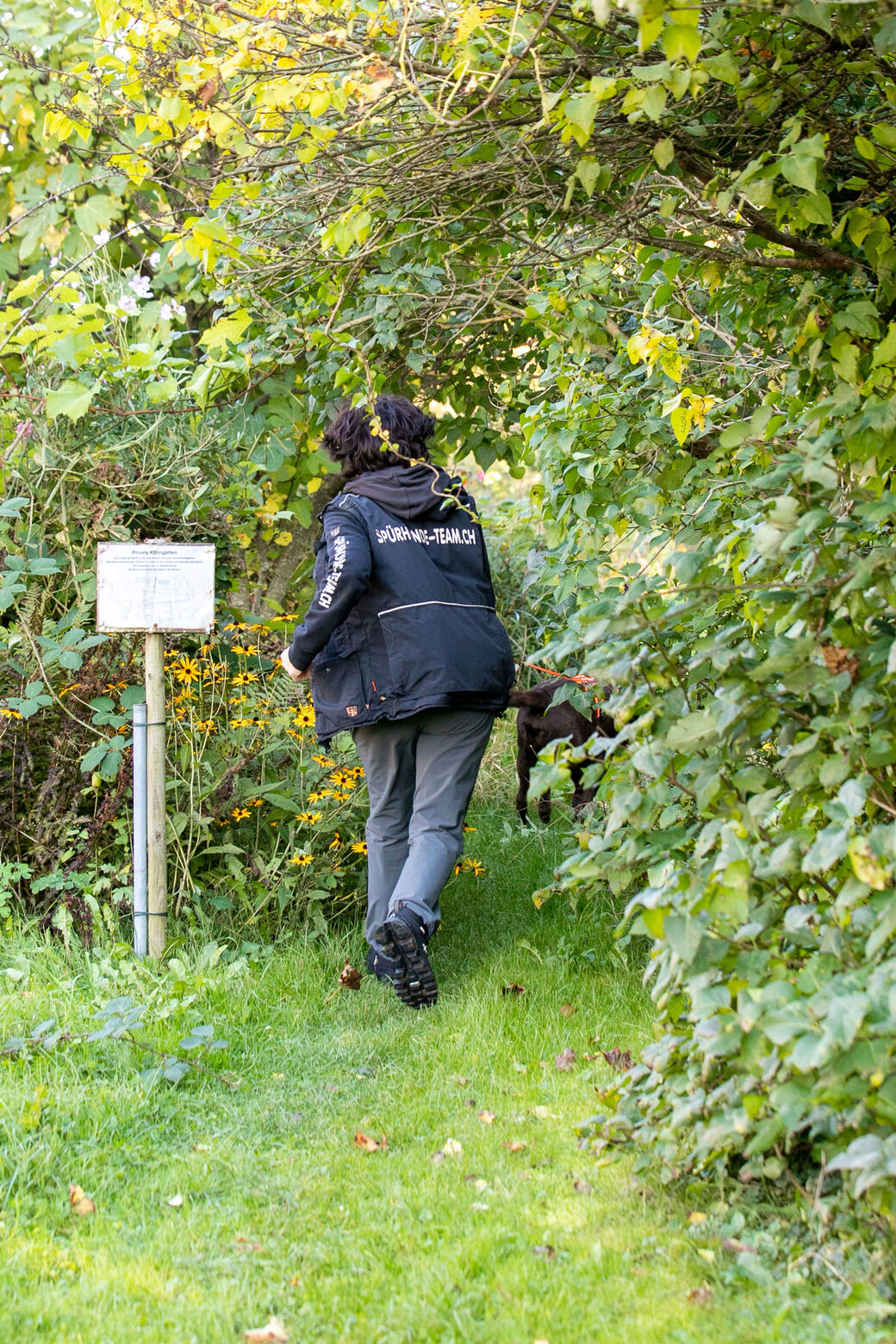
What is the best part of the job for you?
It is definitely the fact that I get to work with my dogs. I spend practically the whole day with creatures that I like. That is an incredible joy. In addition, of course, there is the work in nature and in the fresh air. If you can also make sure that nothing happens to a cute hedgehog, that's the icing on the cake.
Sounds like a dream job. Is there anything that bothers you about the work?
It's frustrating when a rough earthwork date is brought forward just like that, without you knowing about it. Then I arrive at the site and the work has already started. That's bad for me because I can't help any more.
'Hedgehogs unfortunately have a very hard time.'
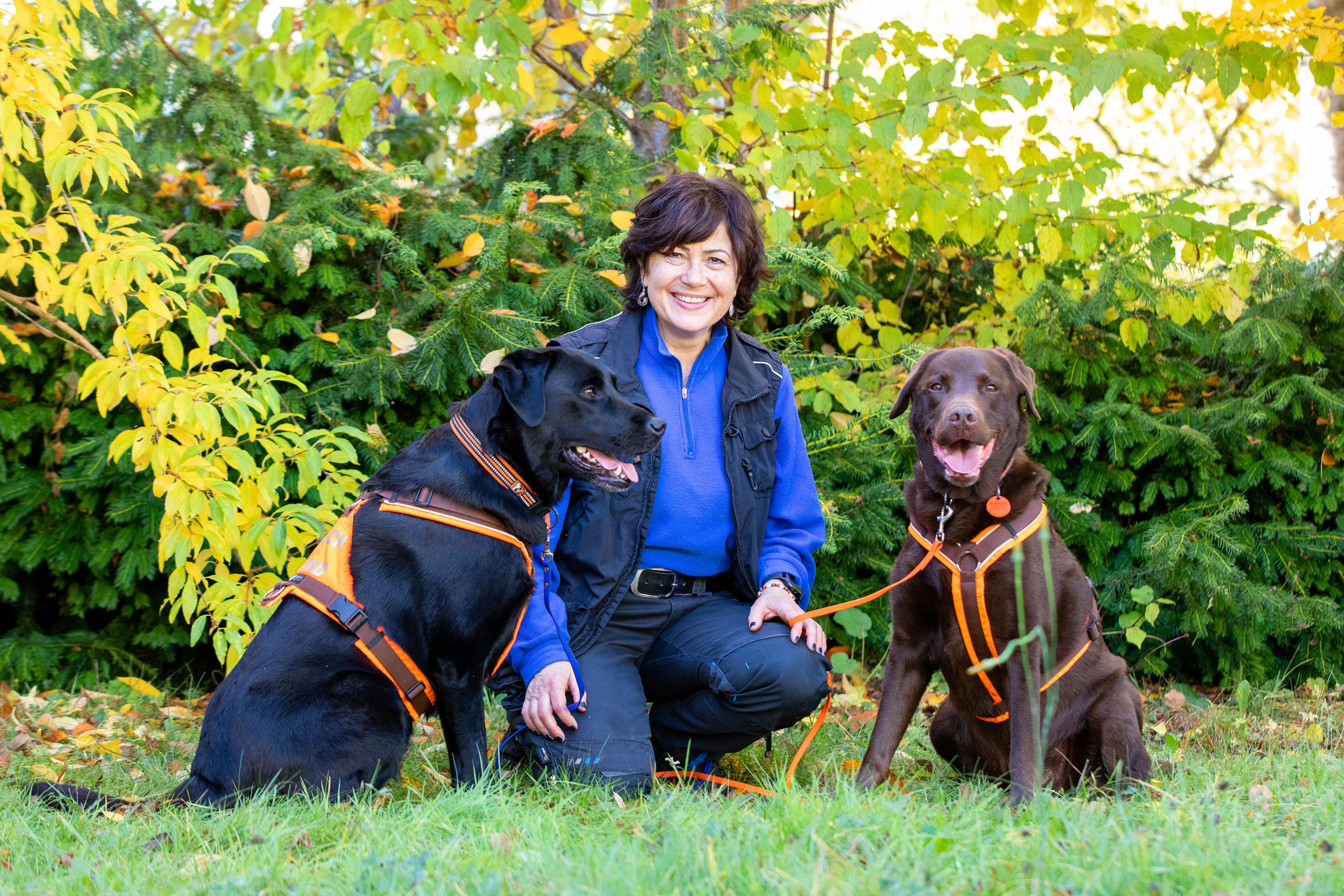
What can each of us do to make life easier for hedgehogs?
Unfortunately, hedgehogs have a very hard time. Day by day they lose more of their habitat. The more areas, hedges and gardens are left natural, the fewer fences or walls are built that cut off the hedgehogs' way to feeding or sleeping places, the better. In addition, some people want to help, but unfortunately do not know enough about the animals. Hedgehogs, for example, are very local and know their habitat extremely well. If you meet a hedgehog on the street, you are welcome to carry it across the road. However, it happens time and again that well-meaning people want to save the hedgehog from road traffic and take it to the nearest forest. Unfortunately, this is doubly wrong: the hedgehog does not live in the forest and does not want to be removed from its ancestral territory for no reason. Therefore, if in doubt, you should always ask hedgehog experts for advice.
